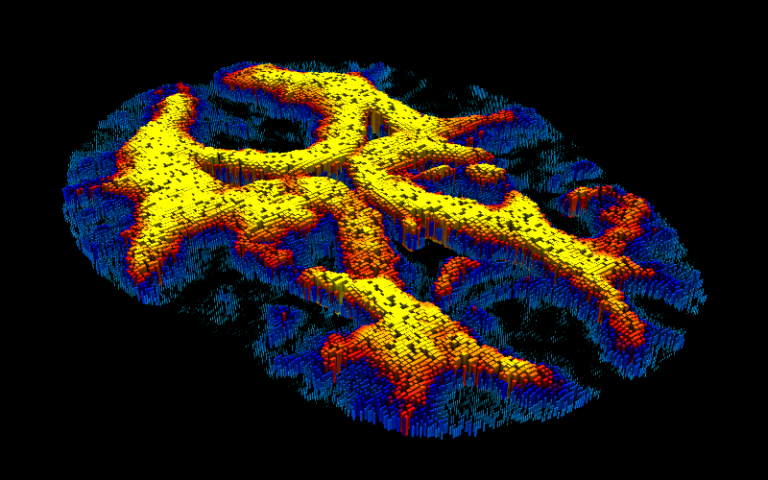AI used to detect brain’s response to multiple-sclerosis treatment
11 June 2019
A new artificial intelligence-based method for detecting the brain's response to treatment in multiple sclerosis (MS) has been developed by researchers at UCL and King's College London.

The new method has substantially higher sensitivity than conventional, radiologist-derived measures permit.
The team studied patients with relapsing–remitting MS treated with the disease-modifying drug natalizumab, where serial magnetic resonance imaging (MRI) scans were available before and after initiation of treatment.
Machine vision was used to extract from each scan an "imaging fingerprint" of the state of the brain, capturing detailed changes in white and grey matter and yielding a rich set of regional trajectories over time.
Compared with conventional analysis of the traditional measures of total lesion and grey matter volume a radiologist is able to extract, AI-assisted modelling of the complex imaging fingerprints was able to discriminate between pre- and post-treatment trajectories of change with much higher accuracy.
The study, published in Nature Digital Medicine, demonstrates that AI can be used to detect brain imaging changes in treated multiple sclerosis with greater sensitivity than measures simple enough to be quantified by radiologists, enabling "superhuman" performance in the task. The approach could be used to guide therapy in individual patients, detect treatment success or failure faster, and to conduct trials of new drugs more effectively and with smaller patient cohorts.
Dr Parashkev Nachev (UCL Queen Square Institute of Neurology) who led the study, said, "Rather than attempting to copy what radiologists do perfectly well already, complex computational modelling in neurology is best deployed on tasks human experts cannot do at all: to synthesise a rich multiplicity of clinical and imaging features into a coherent, quantified description of the individual patient as a whole. This allows us to combine the flexibility and finesse of a clinician with the rigour and objectivity of a machine".
Professor Olga Ciccarelli (UCL Queen Square Institute of Neurology), NIHR Research Professor, who is the senior author of the study, said, "The method is currently focused on imaging changes only; we are extending the approach to predicting the clinical response to disease modifying treatment, in terms of cognitive and motor outcomes. I hope that this exciting field of research will lead to an individual prediction of treatment response in multiple sclerosis using AI”.
This work was funded by UCLH NIHR BRC, and the Wellcome Trust. The broad research programme, additionally funded by the NIHR, UK MS Society, and Novartis, is aligned with UCLH's Research Hospital Initiative, which seeks to embed advanced modelling techniques into real world clinical practice.
Links
- Research paper in Nature Digital Medicine
- Dr Parashkev Nachev
- UCL Queen Square Institute of Neurology
- UCLH NIHR BRC
- KCL
Image
Disconnection pattern in the brains of patients with multiple sclerosis (Credit: Dr Parashkev Nachev)
Media contact
Henry Killworth
E: h.killworth [at] ucl.ac.uk
Tel: + 44 (0) 207 679 5296
 Close
Close

